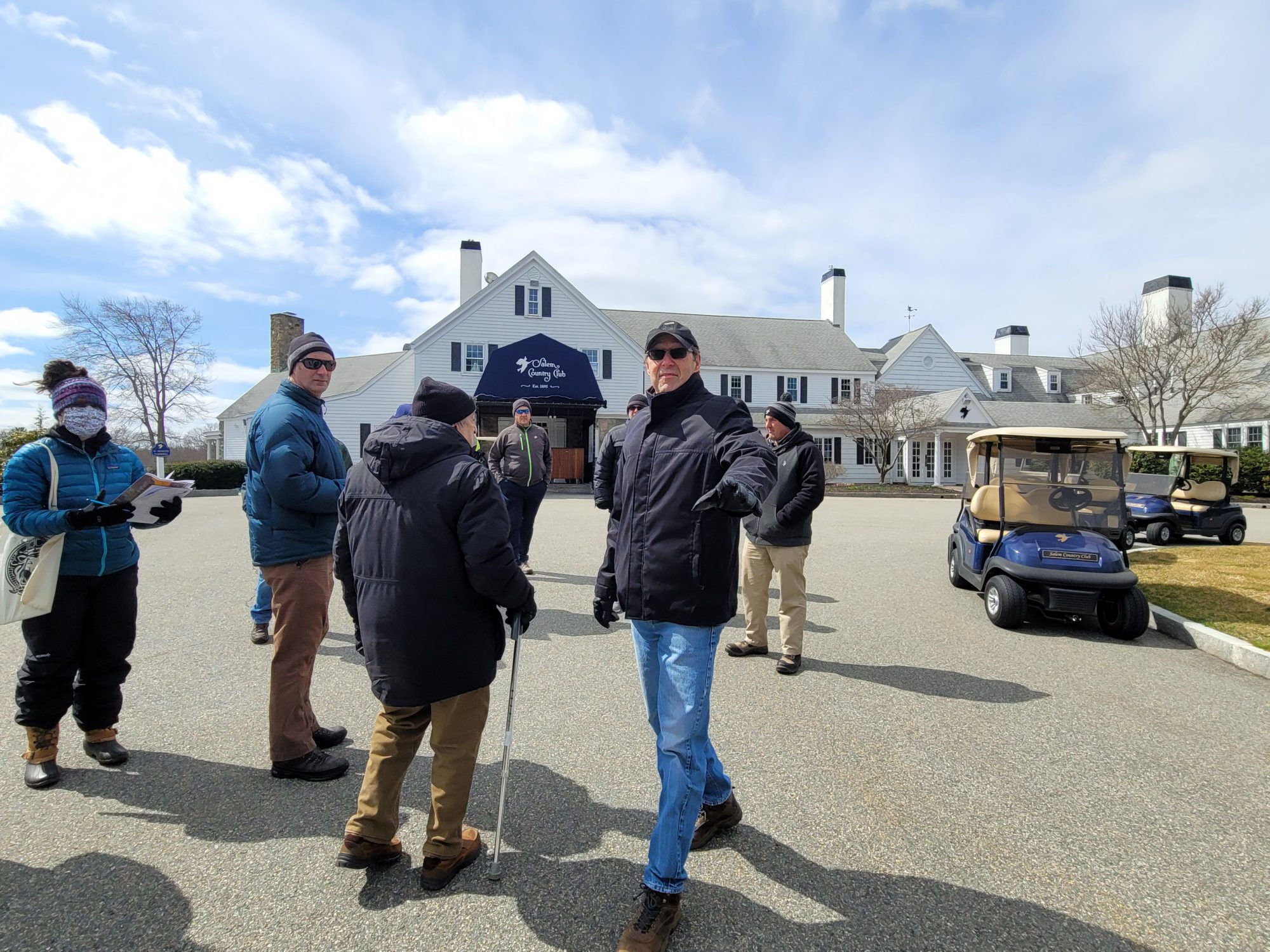PEABODY — Representatives of Salem Country Club barred members of the public from attending a site visit conducted by the Conservation Commission Monday afternoon.
“This will ultimately be resolved with fines but once they resolve the fines, they (Salem) will just go back to what they have been doing,” said Conservation Commission Chair Stewart Lazares. “I would have rather had taken the site visit with the media and public present. My takeaway on not allowing them to observe is they have something to hide.”
The visit had been agreed to by the club and the commission during a March 23 public hearing in which the club admitted to taking down nearly 700 trees during a restoration project in December and January without informing the city of its plans to clear cut trees.
The visit got off to a contentious start when the club made it clear that it had no intention of allowing members of the public, including the media, onto the property to observe the walk-through. Salem’s attorney, Barry Fogel, commission Vice Chair Michael Rizzo, Conservation Agent Lucia DelNegro and WCVB reporter David Bienick sparred verbally in the club’s parking lot as to whether or not the site visit was a public hearing to which the public was entitled to attend.
DelNegro advised the club on three occasions that barring the public was “not a good look,” suggesting that if the public was not allowed to participate, then the commission should not collect a site visit and “should go home.”
After she learned that members of the media had been barred from attending the site visit in spite of the fact that the notice was duly posted, City Councilor Anne Manning-Martin asked, “What are they trying to hide and who are they hiding it from?
“It’s not a good look for the club as it’s just a continuation of their secrecy after they’ve already admitted that they want to work with the city to make the city whole, to make the environment whole again. This is not the way to do this, with no transparency. Here is a private entity benefiting from a 75-percent break in public tax dollars as a publicly-funded open space.”
Manning-Martin said the city is examining the club’s Chapter 61B real-estate tax abatement following a unanimous vote of the City Council earlier this month. According to city Assessor’s Office records, the property’s assessed value for fiscal year 2021 is $9,978,700. The club paid real estate taxes of only $217,800 for fiscal year 2021.
The site visit was in response to a cease-and-desist order issued to the club for removal of living trees and grinding and grubbing stumps in buffer zones or in close proximity to jurisdictional resource areas and depositing wood chips in buffer zones and along local riverfront woods. The notice of the site visit was posted on the city website and also at Peabody City Hall (according to the notice, both inside and outside).
Manning-Martin said that it was clear to her at the March 23 meeting that the commission “had every intention of inviting the public and they moved forward accordingly with a posted public notice only to be shut out.”
“I’d like to know who is advising this club,” she said. “This is just a terrible look after they admitted they had done wrong and said they wanted to work with the city to make things right. Sounds pretty disingenuous and hollow to me.”
Lazares said the magnitude of the actions taken by the club in cutting down so many healthy trees is obvious simply by driving along Forest Street, which cuts through the golf course.
“At least we are going in there with open eyes, but it is clear to me that I can see a lot of destruction here,” he said.
Lazares said the visit was what he expected.
“They took us on a cold, freezing, two-hour tour and we didn’t learn anything we didn’t already know,” he said. “But because of the nonsense they pulled in the beginning we were unable to deliberate because it was not a public hearing.”
Lazares said the commission will deliberate at its April 13 meeting. He plans to insist that the club submit a written reconstruction plan, report at least once a month in writing to the commission and that on-site inspections be held every month until a permanent plan is drawn up to ensure the club does not run afoul of the law in the future. He said that jurisdictional areas will be flagged using GPS to ensure that those areas are properly identified “in perpetuity.”
“That way anyone using a cellphone can know the boundaries of these areas,” he said.

